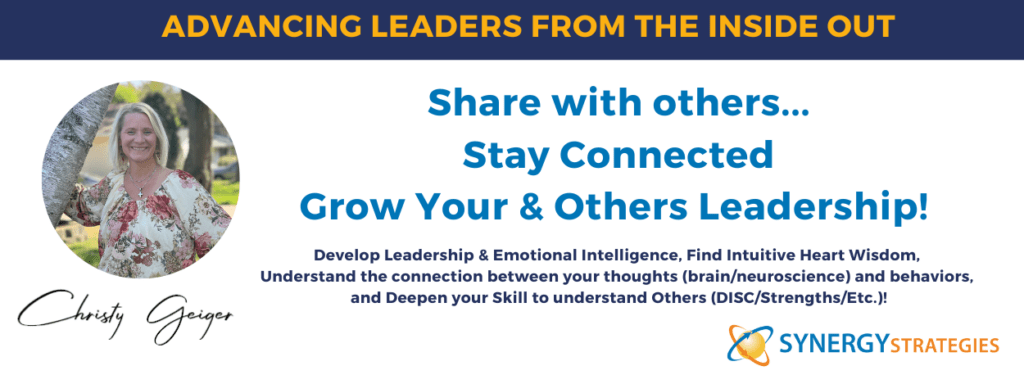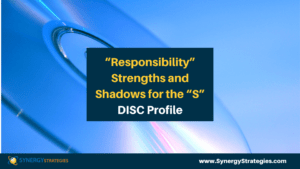In today’s rapidly changing business environment, Emotional Intelligence (EI) is increasingly recognized as a critical component of effective leadership. As organizations prioritize creating dynamic, inclusive, and collaborative cultures, leaders must understand how to connect with and motivate their teams on a deeper level. This is where emotional intelligence comes in.
What is Emotional Intelligence?
Emotional intelligence, as defined by Reuven Bar-On, is “a cross-section of interrelated emotional and social competencies, skills, and facilitators that determine how effectively we understand and express ourselves, understand others and relate with them, and cope with daily demands” (Reuven Bar-On, 2005). In other words, it’s about being smart with your feelings and those of others.
Why Emotional Intelligence Matters in Leadership
Leadership is not just about making decisions and driving results; it’s about managing people, emotions, and relationships effectively.
Emotional intelligence enables leaders to:
- Enhance Communication: Leaders with high emotional intelligence are better communicators. They can pick up on non-verbal cues, understand the emotional context of discussions, and adjust their communication style to meet the needs of their audience.
- Build Stronger Relationships: EI helps leaders develop deeper connections with their teams. When leaders show empathy and understanding, it fosters trust and respect, which are essential for team cohesion and collaboration.
- Improve Decision-Making: Emotions play a significant role in decision-making. As David Phillips notes, “The decisions we make are largely a reflection of the emotions that we’re feeling in various states in our lives.” Leaders who understand this dynamic can make more balanced and informed decisions.
- Increase Employee Engagement: As I mentioned in our Innovative Leader Podcast on Emotional Intelligence, “Productivity will not matter if the heart is not there.” Leaders who prioritize emotional intelligence understand the HUMAN aspect of work, seeing the individual over simply what they produce. By doing this they tend to create more engaging and motivating work environments, leading to higher levels of employee satisfaction and retention.
The Five Components of Emotional Intelligence (EQ-i 2.0)
To effectively leverage emotional intelligence in leadership, it’s crucial to understand its five key components:
- Self-Perception: This involves understanding and evaluating your own emotions and how they influence your behavior. It includes self-esteem, self-awareness, and self-actualization, which help you recognize your strengths and areas for growth.
- Self-Expression: This component focuses on how effectively you express your emotions and communicate with others. It includes assertiveness, emotional expression, and independence, enabling you to articulate your thoughts and feelings clearly and confidently.
- Interpersonal: This involves understanding and managing relationships with others. It includes empathy, social responsibility, and interpersonal relationships, helping you to build strong, positive connections and work collaboratively with your team.
- Decision-Making: This component refers to the ability to make informed and effective decisions based on your emotional and cognitive understanding. It includes problem-solving, reality testing, and impulse control, which help you to analyze situations, consider alternatives, and choose the best course of action.
- Stress Management: This involves managing your own stress and coping with challenging situations. It includes stress tolerance, flexibility, and resilience, helping you to remain calm and adaptable under pressure and recover from setbacks.
The Role of Emotional Intelligence in 4.0 Leadership
These skills and competencies are essential for strong leadership. In the era of Leadership 4.0, which focuses on collaboration, digitalization, and agility, emotional intelligence is more important than ever. It’s not just about possessing technical skills or knowledge. Again in our Innovative Leader episode on Emotional Intelligence, I commented, “The more you move into leadership, the more emotional intelligence competencies you need to have.” This shift in leadership paradigms means that soft skills, particularly emotional intelligence, are essential for leading effectively in the modern world.
Common Misconceptions About Emotional Intelligence
While emotional intelligence is highly valued, there are several misconceptions about it:
- Misconception 1: Emotional Intelligence is Inborn: Some believe that people are either born with emotional intelligence or not. In reality, EI can be developed and improved over time through intentional practice and learning.
- Misconception 2: EI is About Being Nice: EI is often misconstrued as simply being agreeable or nice. However, it involves a range of skills, including assertiveness, conflict resolution, and the ability to give constructive feedback.
- Misconception 3: EI is Irrelevant for Technical Roles: While EI might seem more relevant for roles involving constant interaction with people, even technical roles can benefit from enhanced emotional awareness and communication skills.
- Misconception 4: “I am not emotional.” Said the leader who prides themselves on logical, transactional thinking that is not swayed by emotional weakness. EI is not about being “emotional” or “emotional weakness” it is actually the opposite.
Developing Emotional Intelligence: Practical Steps
To enhance emotional intelligence, leaders must focus on the four core pillars: self-awareness, self-regulation, social awareness, and relationship management.
Here are some practical tips to develop these competencies:
- Self-Awareness: Start by understanding your emotions and triggers. Regular self-reflection, journaling, or mindfulness practices can help you become more aware of how your emotions influence your behavior and decision-making. Take a comprehensive EI assessment to see your strengths and opportunities.
- Self-Regulation: Develop strategies to manage your emotional responses effectively. Techniques such as deep breathing, taking a pause before reacting, and using positive self-talk can help you stay calm under pressure. Consider using tools like the Mood Meter App to track and manage your emotions daily. https://moodmeterapp.com/
- Social Awareness: Improve your ability to empathize with others by actively listening and observing body language. Practice seeing situations from others’ perspectives to better understand their feelings and needs. Engage with resources like the SCARF Model Assessment by the NeuroLeadership Institute to explore social triggers and improve your social awareness. (link to numerous articles on SCARF)
- Relationship Management: Focus on building strong, positive relationships by being clear in your communication, resolving conflicts constructively, and offering support and encouragement to your team members. Joining a leadership coaching program or mastermind group can provide additional support and feedback on your relationship management skills.
Example of Emotional Intelligence in Leadership
Consider a leader who successfully navigates a crisis by demonstrating emotional intelligence. Instead of reacting with anger, panic or frustration, attacking the team, or being defensive, they take a moment to assess their own emotions and then address the team calmly, acknowledging their concerns and providing clear, empathetic communication about the way forward. This approach not only mitigates anxiety but also fosters trust and unity within the team. EI allows leaders to build trust and safety which is the foundation of health teams, cultures, and businesses.
Taking the Next Step: Actions for Developing Emotional Intelligence
To truly enhance your leadership capabilities through emotional intelligence, consider these next steps:
- Assess Your Current EI Level: Start with an assessment like EQ-i 2.0. Contact Christy Geiger at Synergy Strategies for more information on how to purchase and complete the assessment.
- Implement Daily Practices: Incorporate mindfulness, journaling, or meditation into your daily routine to increase self-awareness and emotional regulation. Use tools like the Mood Meter App to track and manage your emotions.
- Join a Learning Community: Engage with a leadership coach, join a mastermind group, or participate in workshops focused on developing emotional intelligence.
- Read and Reflect: Explore further readings such as “The EQ Leader” by Stephen Stine or “Mindset” by Carol Dweck to deepen your understanding.
Emotional intelligence is not just a buzzword; it’s a critical leadership competency in today’s world. As leaders strive to inspire, motivate, and engage their teams, understanding and developing emotional intelligence can make all the difference. Start small, stay consistent, and watch as your leadership impact grows!
Ready to Begin? Contact Christy Geiger at Synergy Strategies for personalized assessments and coaching services to enhance your emotional intelligence. www.SynergyStrategies.com
References
- Bar-On, R. (2005). Emotional-social intelligence: Insights from the Emotional Quotient Inventory (EQ-i).
- Geiger, C., & Phillips, D. (n.d.). Podcast on Emotional Intelligence and Leadership. YouTube. https://www.synergystrategies.com/tilp-40-leading-with-emotional-intelligence/







